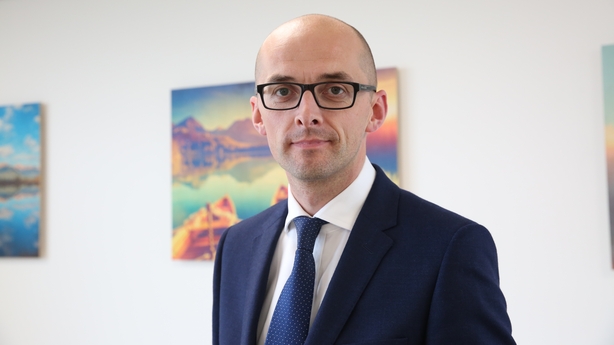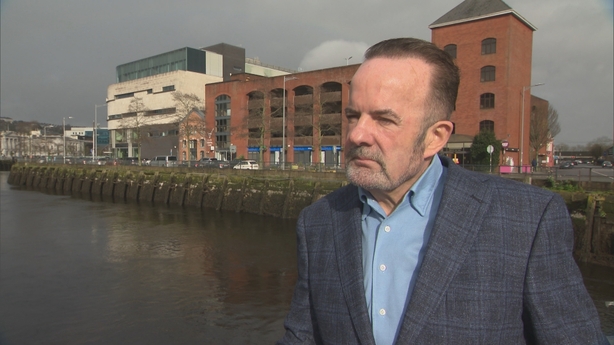Silicon Valley Bank, which was shuttered by US regulators yesterday, has been operating in Ireland since 2012.
SVB's lending to Irish technology and life science companies reached $226m by the end of 2018.
The bank then said it would lend an additional $300m to Irish firms by 2024, as part of a collaboration with the Ireland Strategic Investment Fund (ISIF).
However ISIF has said it has no role in providing loans issued by Silicon Valley Bank to Irish technology businesses.
"Certainly Silicon Valley Bank were an important bank for this sector, there's no doubt about that," Brian Fennelly, a Partner in Deloitte's Debt & Capital Advisory team said.
He estimated it had "upwards of 100 plus borrowers" here.

"That's certainly our understanding but it's hard to know exactly, but certainly there are many borrowers out there who are affected directly or indirectly and who will have questions," Mr Fennelly said.
"We're a venture backed start up, the venture capitalists like you to use SVB," Chief Executive of cosmetic treatment chain Sisu Clinic, Pat Phelan explained, describing SVB as "the start-up bank" which was "entrenched into that ecosystem".
Sisu Clinic remains an SVB customer, but Mr Phelan said the group which had millions on deposit with the bank, withdrew all but an insured sum of $250,000 hours before the bank collapse, amid concerns over its plummeting share price last week.
"We're ok, but obviously you don't want to be saying 'we're ok Jack', when all your friends are in trouble," he said.
"I suppose the worst part of it was getting calls from people yesterday," Mr Phelan said.
"I was talking to one person in particular who runs a very successful Irish company and has eight million that they have no access to today."
"I think certainly there are a huge amount of start-ups going to get stung," he said.

"SVB are the banker of choice, but they are also more importantly the debtor of choice" for start-ups, Mr Phelan said.
"You can raise money from VCs (Venture Capitalists) and mostly Silicon Valley (Bank) will come in as an investor so you are kind of caught on the debt side and you are caught on the reserve side so I think next week is going to be really interesting in start-up world," Mr Phelan said.
On Twitter the Managing Director of Ireland's national start-up accelerator programme, NDRC, confirmed that a "small number" of companies it is working with "have been directly affected by the SVB meltdown".
Ian Browne said it was "not a time to panic" and NDRC would "continue to support [those affected] however we can".
Some SVB customers in Ireland have already been in contact with Mr Fennelly's team in Deloitte.
"Questions to us would be, I've got funds in deposit in the UK (arm of SVB) and the US, can I get access to it? There are deposit insurance programmes in both jurisdictions for affected customers. In the US you are insured up to a quarter of a million dollars by the FDIC (Federal Deposit Insurance Corporation), in the UK it's a lower amount of £85,000 for example," Mr Fennelly explained.
"A question posed to us too is: I've got a loan with the bank, can my loan be called? Our advice there is that as long as the loan is performing and you are paying when due, that loan cannot be called, notwithstanding what is going on right now (at the bank) that contractual situation pertains," he said.
"But many borrowers and customers too, particularly fast-scaling businesses of this nature, are reliant upon funding lines from the bank and continued access to liquidity/working capital."
For those customers Mr Fennelly said that developments over the next few days will be key.
"There's a lot of activity going on this weekend to try and find a fast resolution to this situation for SVB so I imagine the next 24/48 hours will bring more certainty and clarity as to the next steps," he said.







